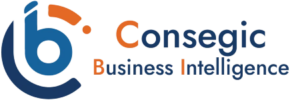Market Research Future (MRFR) has published a cooked research report on the “reverse vending machine market” that contains information from 2023 to 2032. The reverse vending machine market is estimated to register a CAGR of 5.5% during the forecast period of 2023 to 2032 and projected to grow at USD 0.65 billion by 2032.
MRFR recognizes the following companies as the key players in the Market- OMRA System ASA, ACO Recycling, ENVIPCO, Veolia, RVM Systems., Endlos, Sielaff GmbH, AKE Environmental.
Reverse Vending Machine Market Overview
Reverse Vending Machine Market size is grow at USD 0.65 billion by 2032 and 5.5% of CAGR during the forecast period (2023 – 2032).
A reverse vending machine is a specialized type of vending machine that accepts empty beverage containers (e.g., bottles or cans) from consumers and provides a refund or incentive in return, typically in the form of cash, store credit, or vouchers.
The reverse vending machine market has been experiencing steady growth due to increasing environmental awareness, recycling initiatives, and government regulations promoting recycling and waste reduction.
Get the sample copy of report here
Reverse Vending Machine Market Segmentation
Reverse Vending Machine Market Product Types Outlook
· Metal recycling machine
· Glass recycling machine
· Plastic recycling machine
· Hybrid recycling machine
Reverse Vending Machine Market Capacity Outlook
· Less than 300 bottles/Cans
· 300 to 700 bottles/Cans
· More than 700 bottles/Cans
Reverse Vending Machine Market Application Outlook
· Railway Station
· Airports
· Supermarkets
· Tourist Places
· Shopping Malls
· Others (Bus stand, Institutes, Offices etc.)
Reverse Vending Machine Regional Outlook
· North America
· Europe
· Asia-Pacific
· Middle East and Africa
· South America
Market Drivers:
Environmental Concerns: Growing awareness of environmental issues, particularly plastic pollution and the need to recycle, has been a significant driver for the market.
Government Regulations: Various countries and regions have implemented recycling and waste management regulations that require businesses to participate in recycling programs, which has boosted the demand for RVMs.
Consumer Incentives: Offering incentives, such as cash refunds or discounts on future purchases, motivates consumers to return their empty containers.
Reverse vending machine key market players
Key companies in the reverse vending machine market include.
· TOMRA System ASA
· ACO Recycling
· ENVIPCO
· Veolia
· RVM Systems.
· Endlos
· Sielaff GmbH
· AKE Environmental
· Incom Recycle Co.,Ltd
· Kansmacker Mfg
Regional Insights
With the biggest share of 33% in 2022, Asia Pacific became the market leader and would continue to rise significantly throughout the projected period. The region contains a sizable and quickly rising consumer market and some of the largest and fastest-growing economies in the world, including China, India, and Japan. The chance to capitalize on the rising demand for environmentally friendly and sustainable goods and services is considerable for RVM manufacturers and operators. In the area, China is anticipated to have the largest market for RVMs because of its substantial environmental concerns and large population.
Market Restraints:
The unpredictability of raw material costs and the high cost of reverse vending machines are predicted to be growth inhibitors for the industry. On the plus side, technical developments in reverse vending machines, including touch screen panels, AI-powered devices, and others, are projected to create profitable chances for the market’s expansion worldwide.
Reverse vending machine industry developments
TOMRA M1 – Smallest Three-Material RVM (August 2022): The introduction of TOMRA M1 by Tomra Systems ASA addresses the need for compact RVMs suitable for smaller retail spaces. This innovation allows smaller stores to participate in deposit return schemes and promote recycling. The emphasis on compact and economical RVMs is essential for expanding recycling initiatives to various types of retailers, including convenience and small stores.
Aco Recycling’s G-1 Smart RVM (November 2021): The G-1 Smart Reverse Vending Machine from Aco Recycling leverages artificial intelligence (AI) to efficiently recycle plastic, glass, and aluminum waste. It also offers remote monitoring capabilities, enhancing its usability for both consumers and operators. The incorporation of AI and remote monitoring aligns with the trend of utilizing technology to improve the recycling process and user experience.
EcoVend Reverse Vending’s RVM 400 (June 2021 and August 2021): EcoVend Reverse Vending’s RVM 400 was installed in one of Portugal’s leading supermarkets, contributing to plastic bottle recycling efforts. In August 2021, the company unveiled an upgraded version of the RVM 400, featuring improved speech and touchless control features, as well as a large advertising screen. These enhancements demonstrate a focus on user-friendly interfaces and the potential for advertising and communication within RVMs.
Explore Trending Research Reports @
Water and Wastewater Treatment Equipment Market













